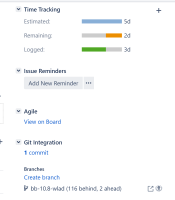Details
-
Task
-
Status: Closed (View Workflow)
-
Blocker
-
Resolution: Fixed
-
None
Description
OpenSSL 3.0 is not yet released as GA, but we already experiment with the builds in Fedora (Copr repository available: https://copr.fedorainfracloud.org/coprs/saprasad/openssl-3.0/) or in CentOS Stream 9 (https://kojihub.stream.centos.org/koji/buildinfo?buildID=7571).
There are some documented changes in OpenSSL 3.0: https://wiki.openssl.org/index.php/OpenSSL_3.0 but there are also some changes that should not be visible. However, since other SW depends on some internals, the changes actually affect the compatibility more than documented.
MariaDB 10.5.9 (expecting 10.6.x behaves the same) fails to build with this upcoming OpenSSL 3.0.
The problem is mainly with md5, sha and crypto parts.
A partial fix is proposed here:
https://gitlab.com/redhat/centos-stream/rpms/mariadb/-/merge_requests/4
but some tests (related to encrypting) fail even with this patch, so it is definitely not complete.
MySQL report is https://bugs.mysql.com/bug.php?id=103818
Attachments
Issue Links
- blocks
-
MDEV-25949 Add support for OpenSSL 3.0 in Galera
-
- Closed
-
- causes
-
MCOL-4964 Columnstore doesn't build with OpenSSL 3
-
- Closed
-
-
MDEV-27531 Compilation errors upon building with bundled SSL
-
- Closed
-
- includes
-
MDEV-26015 Remove DH param stuff
-
- In Review
-
-
MDEV-26302 Unittest failures with OpenSSL-3: aes & mf_iocache
-
- Closed
-
-
MDEV-26771 crash with OpenSSL 3.0.0
-
- Closed
-
-
MDEV-26950 mysqld got signal 6
-
- Closed
-
-
MDEV-27236 mysql_upgrade crashes server process
-
- Closed
-
-
MDEV-27403 Crash in evp_md_ctx_clear_digest/my_md5 while running mysql_install_db on macOS
-
- Closed
-
- is blocked by
-
MDEV-27140 Multiple tests started to fail when OpenSSL-3.0 support patch was backported to the MariaDB Server 10.5 version
-
- Closed
-
-
MDEV-31511 MariaDB 10.4 doesn't support OpenSSL 3
-
- Closed
-
- is part of
-
MDEV-27373 Q1 2022 release merge
-
- Closed
-
- relates to
-
MCOL-4962 Columnstore doesn't build with gcc 12 (on Fedora Rawhide)
-
- Closed
-
-
MDEV-27540 Different OpenSSL versions mix up in build depending on cmake options
-
- Closed
-
-
MDEV-27542 S3 binaries still link with OpenSSL 1.x or with both
-
- Closed
-
-
MDEV-29000 Backport OpenSSL-3.0 compatibility to 10.5
-
- Closed
-
-
CONC-503 Add support for OpenSSL 3.0
-
- Closed
-
-
MDEV-28133 Backport OpenSSL-3.0 compatibility to 10.6 branch
-
- Closed
-
-
MDEV-28339 Crashes with OpenSSL 3.0.2
-
- Closed
-

OpenSSL 3.0.0 is now released as RC, so the design and functionality should not be changed any more: https://www.openssl.org/blog/blog/2021/06/17/OpenSSL3.0ReleaseCandidate/
Can I kindly ask whether "Fix versions: 10.6" means somebody is looking at this soon or what is the rough ETA?